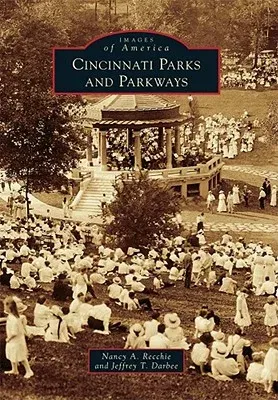Nancy A Recchie
(Author)Cincinnati Parks and ParkwaysPaperback, 11 October 2010

Qty
1
Turbo
Ships in 2 - 3 days
In Stock
Free Delivery
Cash on Delivery
15 Days
Free Returns
Secure Checkout

Part of Series
Images of America
Part of Series
Images of America (Arcadia Publishing)
Print Length
128 pages
Language
English
Publisher
Arcadia Publishing (SC)
Date Published
11 Oct 2010
ISBN-10
0738583944
ISBN-13
9780738583945
Description
Product Details
Authors:
Book Format:
Paperback
Country of Origin:
US
Date Published:
11 October 2010
Dimensions:
23.52 x
16.74 x
0.84 cm
ISBN-10:
0738583944
ISBN-13:
9780738583945
Language:
English
Location:
Charleston, SC
Pages:
128
Publisher:
Weight:
312.98 gm